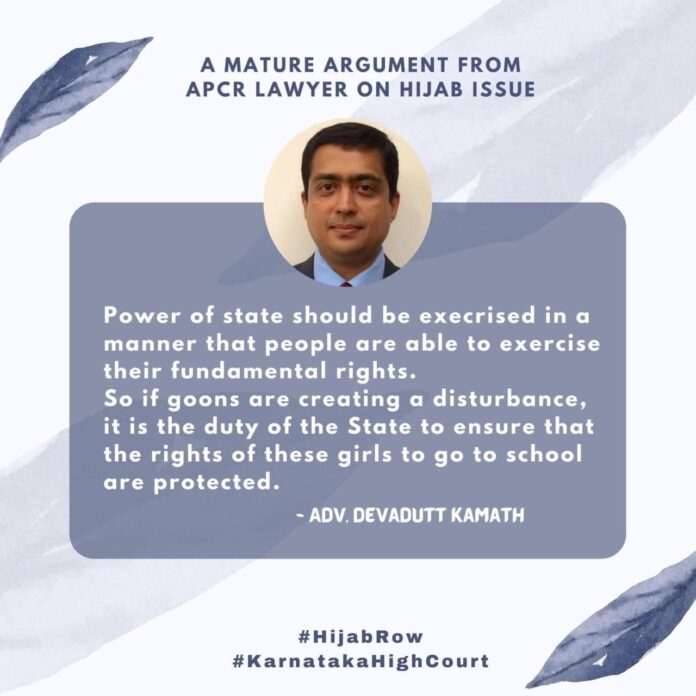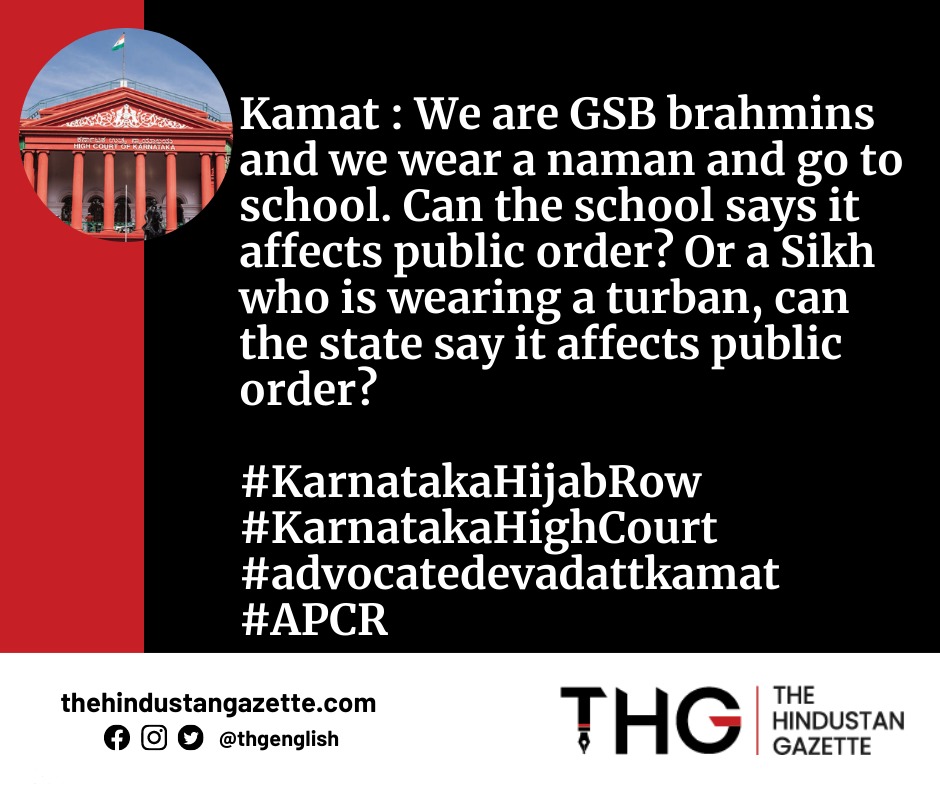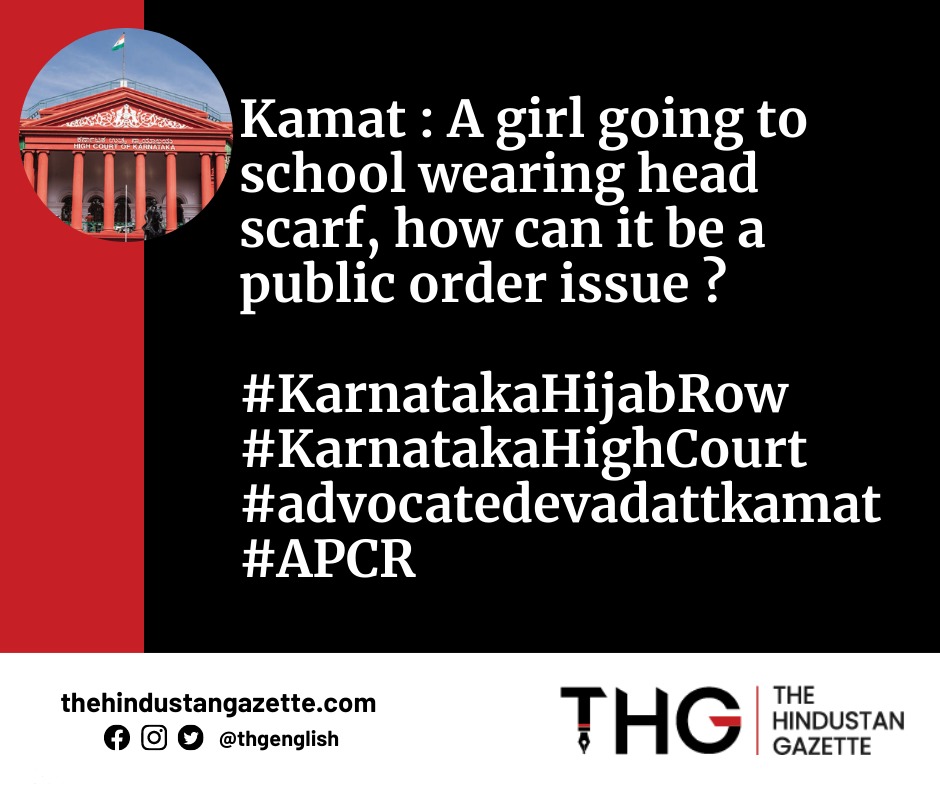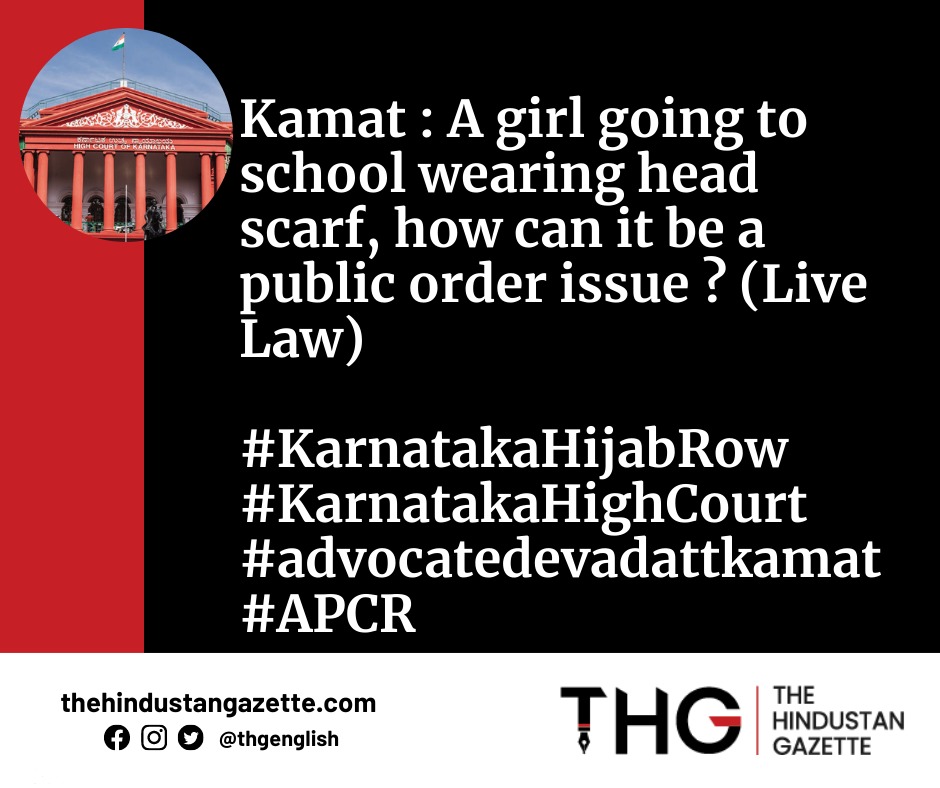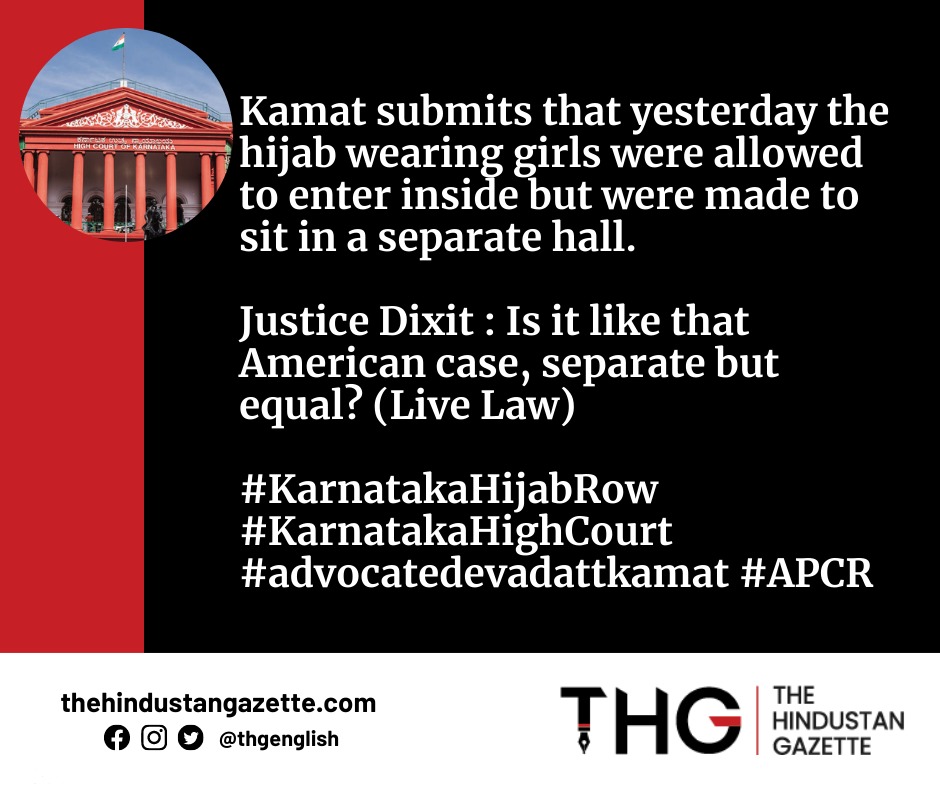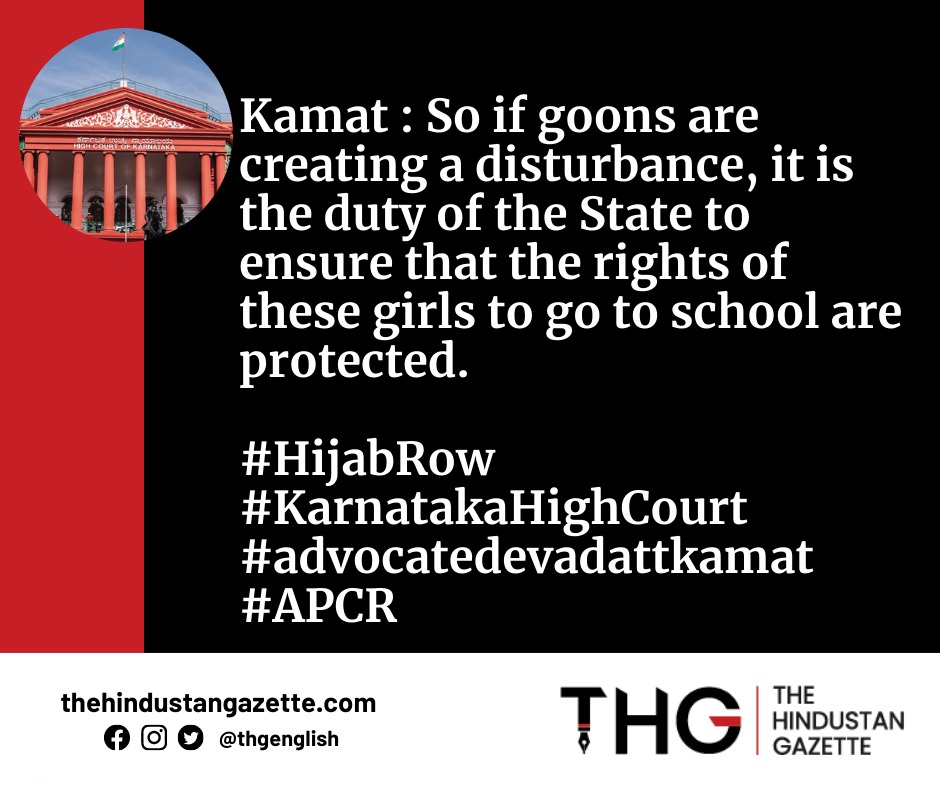Karnataka High Court on Tuesday heard four petitions against the action of educational institutions stopping female Muslim students from attending classes wearing a hijab.
In the petitions, students argue that the institutions are discriminating against them and other female Muslim students by denying them when with hijab.
The Kerala government had recently issued an order clarifying that hijab or anything which highlights religious symbols cannot be allowed as part of the uniform of the Student Police Cadet (SPC) project.
Justice Krishna S Dixit is hearing the petitions. Senior Advocate Devadutt Kamat is representing the Kundapur girls on behalf of the Association for Protection of Civil Rights (APCR)
Before beginning the hearing, Justice Krishna Dixit said, “We will go by reason, by law, not by passion or emotions. We will go by what Constitution says. Constitution is the Bhagavad Gita for me. I have taken to the constitution.”
Appearing for the petitioners, Kamat made some points regarding the Hijab issue in front of the court. “Wearing of head scarf (not burqa or veil) is an essential part of Islamic religion,” he said.
Kamat said, “The second proposition is that the right to wear a dress is a facet of the fundamental right to speech and expression under Article 19(1)(a). The threshold of “public order” is extremely high to restrict this right.
“Every practice of religion if the state wants can give the colour of public order.”
“We are GSB brahmins and we wear a naman and go to school. Can the school says it affects public order? Or a Sikh who is wearing a turban, can the state say it affects public order?” Kamat argued.
Senior advocate Kamat: “So if goons are creating a disturbance, it is the duty of the State to ensure that the rights of these girls to go to school are protected.”
“A girl going to school wearing head scarf, how can it be a public order issue?” He questioned.
Kamat says that some foreign jurisdictions follow the concept of “negative secularism” which does not permit the display of religious identity in public. But, in India “positive secularism” is followed.
We follow the path of “positive secularism” where the State creates an environment where we respect practice of all religions, he added.
“In schools, somebody wears a nama, somebody a hijab, somebody a cross, that is a reflection of positive secularism.”
Kamat further submitted that yesterday the hijab wearing girls were allowed to enter inside but were made to sit in a separate hall.
He says that allowing students wearing hijab to sit separately is a form of “religious apartheid” and “untouchability is not fully abolished”
Making a prayer for interim order, Kamat said, “Considering the fact that they have been attending classes with head scarves for long, and that the exams are in the offing, kindly allow them to attend classes, based on balance of convenience.”
(Inputs from Live Law)


